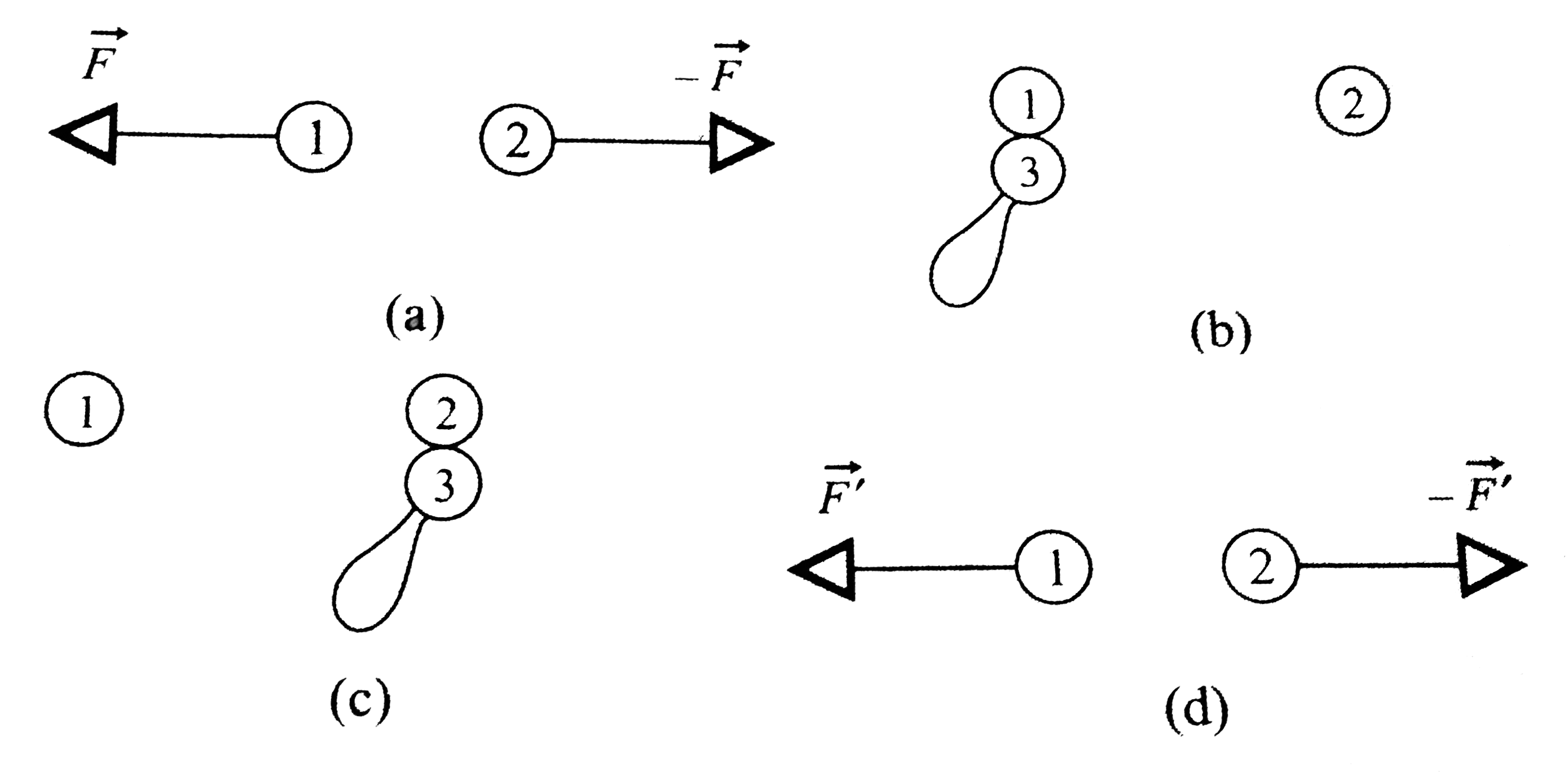Two identical conducting spheres 1 and 2 carry equal amounts of charge and are fixed apart at a certain distance larger than their diameters. The spheres repel each other with an electrical force of 88mN. A third identical sphere 3, having an insulating handle and initially uncharged, is touched first to sphere 1 and then to sphere 2 and finally removed. Find the force between spheres 1 and 2 as shown if Figure.
 ,
,
F2
F4
3F4
3F8
The correct Answer is:D

F=KQ2r2
Now, qC=qA=3Q4
F.=K(Q2)(3Q4)r2⇒F.=38F
Similar Questions
Two identical conducting spheres A and B, carry equal charge. They are separated by a distance much larger than their diameters, and the force between them is F. A third identical conducting spheres, C,is uncharged. Sphere C is first touched to A, then to B, and then removed. As a result, the force between A and B would be equal to :
View SolutionTwo identical conducting spheres, fixed in space, attract each other with an electrostatic force of 0.108N when separated by 50.0cm, centre-to-centre. A thin conducting wire then connects the spheres. When the wire is removed, the spheres repel each other with an electrostatic force of 0.0360N. What were the initial charges on the spheres?
View SolutionThe centres of two identical small conducting sphere are 1 m apart. They carry charge of opposite kind and attract each other with a force F. when they connected by conducting thin wire they repel each other with a force F/3. The ratio of magnitude of charges carried by the spheres initially in n:1. Find value of n
View SolutionTwo equally charged, indentical metal spheres A and B repel each other with a force F" . The spheres are kept fixed with a distance r between them. A third identical, but uncharged sphere C is brought in contact with A and removed. The magnitude of the net electric force on A is
View SolutionTwo identical conducting spheres 1 and 2 carry equal amounts of charge and are ficed apart at a certain distance larger than their diameters. The spheres repel each other with an electrical force of 88mN. A thired identical sphere 3, having an insulating handle and initially uncharged, is touched first to sphere 1 and then to sphere 2 and finally removed. Find the force between spheres 1 and 2 as shown if Figure. ,
View SolutionTwo identical conducting spheres are charged by induction and then separated by a large distance, sphere 1 has charge +Q and sphere 2 has charge -Q. A third sphere is initially uncharged. If sphere 3 is touched to sphere 1 and separated and then touched to sphere 2 and separated what is the final charge on each of the three spheres?
View SolutionIndentical isolated conduction sphers 1 and 2 have equal charges and are separated by a distance that is large compared with their diameters (Fig.a). The electrostatic force acting on spkhere 2 due to sphere 1 is F. Suppose now that a third identical sphere 3, having an insulation handle and initially neutral, is touched first to sphere 1 (Fig. b), then to sphere 2 (Fig. c), and dinally removed (Fig. d). The electrostatic force that now acts on sphere 2 has magnitude F'. What is the (F')/(F) ?
View SolutionTwo equally charged, Identical metal spheres A and B repel each other with a force P The spheres are kept fixed with a distance 7 between them. A third identical, but uncharged sphere is brought in contact with A and then placed at the mid point of the line Joining A and B. The magnitude of the net electric force on is:
View Solution